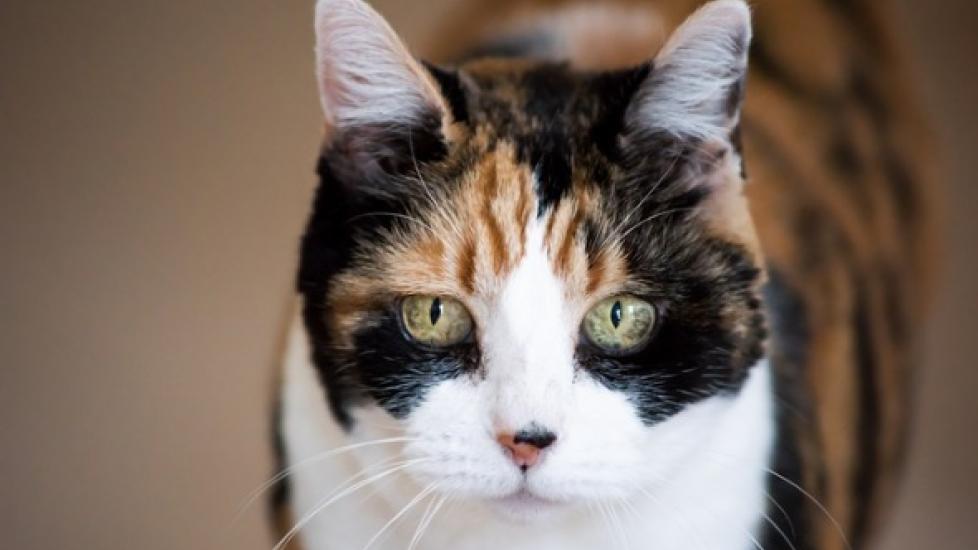Cat Dementia: Symptoms, Causes and Treatment
Reviewed and updated for accuracy on November 22, 2019, by Dr. Katie Grzyb, DVM
As feline pets are living longer and longer, veterinarians and pet owners must help cats deal with age-related complications and disorders more frequently.
Cognitive dysfunction syndrome (CDS) is one such condition that is directly related to the aging of a cat's brain. Commonly referred to as cat dementia, it ultimately leads to changes in awareness, deficits in learning and memory, and decreased responsiveness to stimuli.
Although the initial symptoms of feline dementia are mild, they gradually worsen over time, which is known as “cognitive decline.”
Here’s what you need to know about cat dementia.
Feline Dementia Symptoms and Types
Since the onset of cognitive dysfunction syndrome tends to be a slow process, the most common symptoms that you will notice are behavioral.
For cats, these behavioral signs of dementia typically become most noticeable when cats are 10 years of age or older.
The most common behavioral signs of dementia in cats are represented by the acronym DISHA. DISHA stands for:
-
Disorientation
-
[changes in] Interactions with others
-
Sleep-wake cycle alterations
-
House soiling
-
Activity level changes
Within these categorizations of symptoms, you might notice:
-
Confusion
-
Anxiety/restlessness
-
Extreme irritability
-
Decreased desire to play
-
Excessive licking
-
Seeming disregard for previously learned training or house rules
-
Slow to learn new tasks
-
Inability to follow familiar routes
-
Lack of self-grooming
-
Fecal and urinary incontinence
-
Loss of appetite (anorexia)
-
Changes in sleep cycle (e.g., night waking, sleeping during the day)
-
Increased vocalization
Causes of Cognitive Dysfunction in Cats
According to one study, close to one third of cats aged 11-14 years will show at least one behavioral symptom related to CDS. For cats over the age of 15, that increases to about 50% of them.
Although the exact cause of cognitive dysfunction syndrome is currently unknown, genetic factors may predispose an animal to develop the condition.
What is known is that feline cognitive dysfunction syndrome is the degenerative process of a cat’s brain that can ultimately lead to the loss or impairment of one or more of your cat’s cognitive functions.
Diagnosis for Cat Dementia
You will need to give a thorough history of your cat’s health to your veterinarian, including the onset and nature of the symptoms and possible incidents that might have precipitated the unusual behaviors or complications.
To help with diagnosis, record the abnormal activities you are witnessing for your veterinarian to look over.
Your veterinarian will then perform a complete physical examination to evaluate the overall health status and cognitive functions of the cat.
Routine blood tests, ultrasounds and X-rays help rule out other diseases that may lead to behavioral changes associated with cognitive dysfunction syndrome.
Treatment of Cognitive Dysfunction Syndrome in Cats
Cats with cognitive dysfunction syndrome require lifelong therapy and support. However, your dedication to treatment can make a world of difference.
For example, although it will not “cure” your cat, maintaining a healthy and stimulating environment will help slow the progression of cognitive decline. This typically involves creating a daily routine of exercise, play and training.
In addition to medication and behavioral therapy, your veterinarian may suggest a special, balanced diet to improve your cat's cognitive function (memory, learning ability, etc.).
This diet is typically supplemented with omega-3 as well as antioxidants such as vitamin E and C, selenium, flavonoids, carotenoids like beta-carotene, and carnitine and—all considered excellent for improving a cat's cognitive functions.
You can also find holistic supplements that contain these helpful ingredients.
Managing Feline Dementia
Your veterinarian will evaluate your cat periodically to monitor their response to therapy and the progression of symptoms. However, if you notice any behavioral changes in your cat, notify your vet immediately.
For stable patients, twice-yearly checkups are sufficient enough, unless new problems arise.
Featured Image: iStock.com/krblokhin
See Also
Health Tools
Not sure whether to see a vet?
Help us make PetMD better
Was this article helpful?
